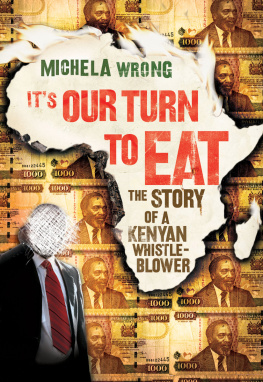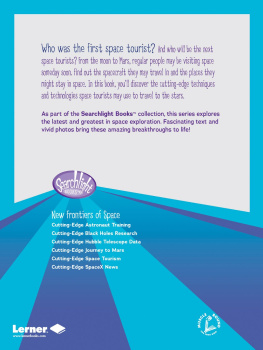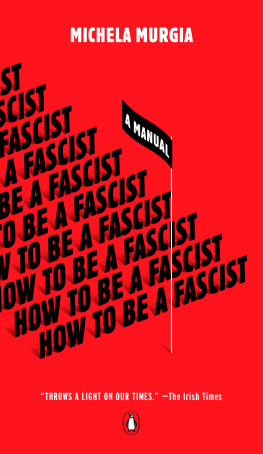Michela Wrong - In the Footsteps of Mr Kurtz
Here you can read online Michela Wrong - In the Footsteps of Mr Kurtz full text of the book (entire story) in english for free. Download pdf and epub, get meaning, cover and reviews about this ebook. year: 2012, publisher: HarperCollins UK, genre: Non-fiction / History. Description of the work, (preface) as well as reviews are available. Best literature library LitArk.com created for fans of good reading and offers a wide selection of genres:
Romance novel
Science fiction
Adventure
Detective
Science
History
Home and family
Prose
Art
Politics
Computer
Non-fiction
Religion
Business
Children
Humor
Choose a favorite category and find really read worthwhile books. Enjoy immersion in the world of imagination, feel the emotions of the characters or learn something new for yourself, make an fascinating discovery.

- Book:In the Footsteps of Mr Kurtz
- Author:
- Publisher:HarperCollins UK
- Genre:
- Year:2012
- Rating:5 / 5
- Favourites:Add to favourites
- Your mark:
- 100
- 1
- 2
- 3
- 4
- 5
In the Footsteps of Mr Kurtz: summary, description and annotation
We offer to read an annotation, description, summary or preface (depends on what the author of the book "In the Footsteps of Mr Kurtz" wrote himself). If you haven't found the necessary information about the book — write in the comments, we will try to find it.
In the Footsteps of Mr Kurtz — read online for free the complete book (whole text) full work
Below is the text of the book, divided by pages. System saving the place of the last page read, allows you to conveniently read the book "In the Footsteps of Mr Kurtz" online for free, without having to search again every time where you left off. Put a bookmark, and you can go to the page where you finished reading at any time.
Font size:
Interval:
Bookmark:
LIVING ON THE BRINK OF DISASTER IN MOBUTUS CONGO

To Michael Holman,
who made sure the book got written
You can check out any time you like,
but you can never leave
Writing this book, I relied on the hospitality of many. In Brussels, Sarah Lambert provided a home away from home; in Washington Patti Waldmeir welcomed me; in Paris I am indebted to Beatrice Lacoste; and in Geneva my uncle and aunt Mario and Anneke Musacchio were wonderful hosts. In Kinshasa I would have gone mad had it not been for the hospitality and friendship of Serge and Francis.
Journalists are not generally a sharing breed, so I am particularly grateful for help given by Massimo Alberizzi, Marina Rini, Victor Rousseau, Marie France Cros, David Goodhart and Philip Gourevitch. Steve Askins and Carole Collins, experts on Mobutus financial arrangements, were kind enough to give me access to their papers. I am grateful to the Financial Times for funding so many of my African journeys and indulging my bookwriting ambitions. It was a great boon to be able to call on John Caveney, researcher at the Financial Times , for help.
My friends Iain Pears, Sarah and Juliette Towhidi were supportive throughout. My parents put up with my short temper and Julian Harty, my computer-wise brother-in-law, kept me operational by salvaging the ruins of my laptop.
I have bounced questions and ideas incessantly off Peter Vandevelde, Arthur Malu Malu, Julie Mukendi and Professor Mabi Mulumba. Their patience and good humour are much appreciated.
I owe particular thanks to the US magazine Transition . At a time when no one else seemed interested in the project, editor Mike Vazquez was appreciative and enthusiastic, keeping me going when I was in danger of flagging. Edited excerpts from the prologue and chapters eight and twelve were first published in Transition s pages.
Lastly, my thanks to Chris McGreal, Christian Jennings, Richard Dowden and, above all, Koert Lindyer, my cherished travelling companions throughout the years in Congo/Zaire.

He wont be forgotten. Whatever he was, he was not common. He had the power to charm or frighten rudimentary souls into an aggravated witch-dance in his honour; he could also fill the small souls of the pilgrims with bitter misgivings: he had one devoted friend at least, and he had conquered one soul in the world that was neither rudimentary nor tainted with self-seeking. No; I cant forget him.
Heart of Darkness
Joseph Conrad
The feeling struck home within seconds of disembarking.
When the motor-launch deposited me in the cacophony of the quayside, engine churning mats of water hyacinth as it turned to head back across the brown expanse of oily water that was the River Zaire, I was hit by the sensation that so unnerves first-time visitors to Africa. It is that revelatory moment when white, middle-class Westerners finally understand what the rest of humanity has always knownthat there are places in this world where the safety net they have spent so much of their lives erecting is suddenly whipped away, where the right accent, education, health insurance and a foreign passportall the trappings that spell It Cant Happen to Meno longer apply, and their well-being depends on the condescension of strangers.
The pulse of apprehension drummed as I stuffed my clothes back into the ageing suitcase that had chosen the river crossing between Brazzaville and Kinshasa as the moment to split at the seams, transforming me into a truly African traveller. It quickened as a sweating young British diplomat signally failed to talk our way through the red tape and a chain of hostile policemen picked through the intimacies of my luggage, deciding which bits to keep. It subsided as we emerged from our three-hour ordeal, a little the lighter, finally crossing the magic line separating the customs area from the city.
But in truth, the quiet thud of fear would be there throughout my time in Zaire, whether I was drinking a cold Primus beer in the bustling Cit or taking tea in the green calm of a notables patio. This ominous awareness of a world of infinite, sinister possibilities had become one of the dominant characteristics of the nation led by the man who started life as plain Joseph Dsir Mobutu, cooks son, but reinvented himself as Mobutu Sese Seko Kuku Ngbendu Wa Za Banga, the all-powerful warrior who goes from conquest to conquest, leaving fire in his wake.
By the mid-1990s, Mobutu had become more noticeable by his absence than his presence, a tall, gravel-voiced figure glimpsed occasionally at official ceremonies and airport walkabouts in Kinshasa, or fielding hostile questions at a rare press conference in France with a sardonic politeness that hinted at huge world-weariness. Rattled by the army riots that had twice devastated his cities, belatedly registering the extent to which he was hated, he had withdrawn from a resentful capital to the safety of Gbadolite, his palace in the depths of the equatorial forest, to nurse his paranoia.
His impassive portrait, decked in comic-opera uniform, kept watch on his behalf, glowering from banks, shops and reception halls. Big Man rule had been encapsulated in one timeless brand: leopardskin toque, Buddy Holly glasses and the carved cane so imbued with presidential force mere mortals, it was said, could never hope to lift it. He liked to be known as the Leopard, and the face of a roaring big cat was printed on banknotes, ashtrays and official letterheads. But to a population that had once hailed him as Papa, he was now known as the dinosaur, a tribute to how sclerotic his regime had become. Certainly, on a continent of dinosaur leaders, of Biya and Bongo, Mugabe and Moi, he rated as a Tyrannosaurus Rex of the breed, setting an example not to be followed. No other African autocrat had proved such a wily survivor. No other president had been presented with a country of such potential, yet achieved so little. No other leader had plundered his economy so effectively or lived the high life to such excess.
Preyed on by young men with Kalashnikovs, its administration corroded by corruption, a nation the size of Western Europe had fallen off the map of acceptable destinations. My battered copy of the Belgian Guide Nagel, picked up in a Paris bookshop, described Kinshasa as a modern capital boasting all the usual attributes of Europes great cities and encouraged the tourist to explore its museums, monuments and indigenous quarters. But that had been in 1959, when the world was a white mans oyster. Kinshasa was now a stop bypassed even by hardened travellers, where airlines avoided leaving their planes overnight for fear of what the darkness would bring. A hardship posting for diplomats, boycotted by the World Bank and IMF, it was a country every resident seemed determined to abandon, if only they could lay their hands on the necessary visa.
I would be there for the end, and for the beginning of the end.
Less than three years after my arrival, the tables were turned and I was the one to experience the curious intimacy the looter shares with his victim, rifling through Mobutus wardrobes, touring his bathroom and making rude remarks about his taste in furniture (African dictator kitsch of the worst kind). Somewhere at the back of one of my drawers, there is a stolen fishknife that was once part of the presidential dining set. My companions in crime were more ambitiousthey took monogrammed pillow cases, bottles of fine French wine, even a presidential oil portrait. But looters were being shot on the streets the day we paid our unannounced visit on Marshal Mobutus villa in Goma, and I wasnt going to risk execution for a souvenir.
Font size:
Interval:
Bookmark:
Similar books «In the Footsteps of Mr Kurtz»
Look at similar books to In the Footsteps of Mr Kurtz. We have selected literature similar in name and meaning in the hope of providing readers with more options to find new, interesting, not yet read works.
Discussion, reviews of the book In the Footsteps of Mr Kurtz and just readers' own opinions. Leave your comments, write what you think about the work, its meaning or the main characters. Specify what exactly you liked and what you didn't like, and why you think so.









